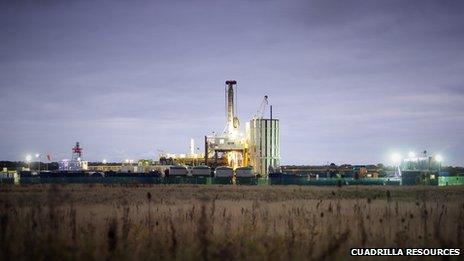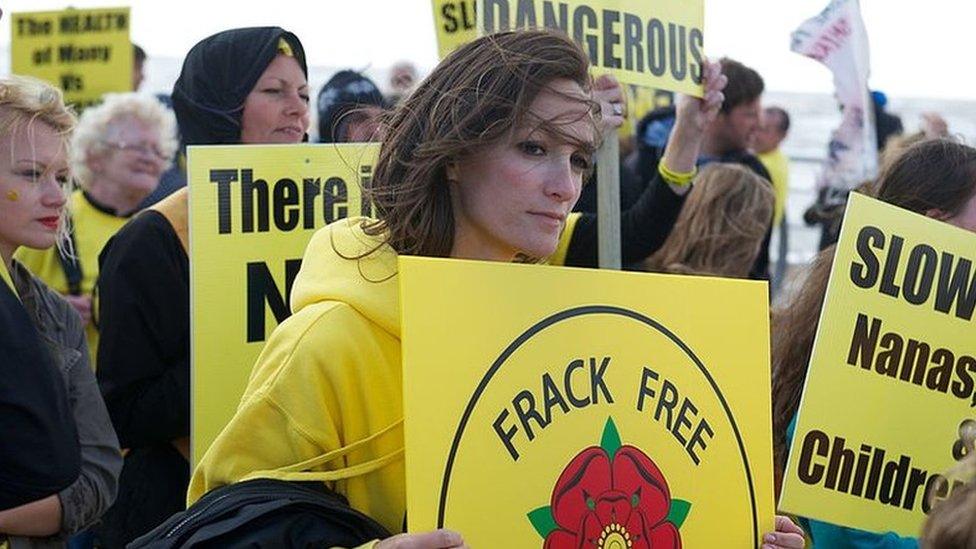Fracking in the pipeline as exploration sites offered to firms
- Published
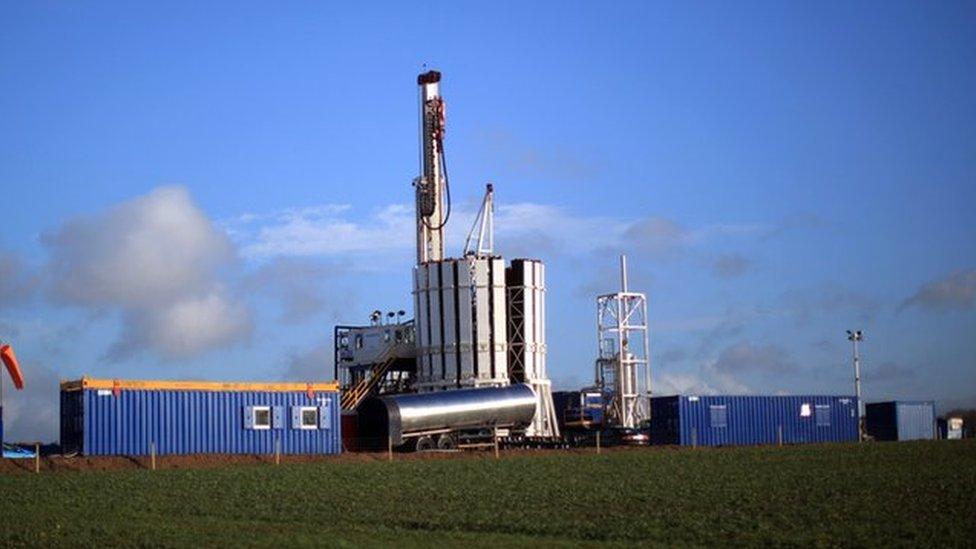
Lancashire County Council recently rejected shale gas applications from Cuadrilla
The Oil and Gas Authority has announced 27 more locations in England where licences to frack for shale oil and gas will be offered.
Twelve firms, including Cuadrilla and Ineos, have been given the exclusive right to explore for oil and gas, including fracking.
The exploration sites include areas in the Midlands and the North East, external.
However, whether exploration can actually go ahead is subject to local planning consent.
The announcement comes after Energy Secretary Amber Rudd said last week that planning decisions on fracking would be speeded up.
The blocks of land, which are typically 100 sq-km, include areas near Lincoln, Nottingham, Sheffield and Preston.
A second group of 132 further blocks could be granted following a consultation.
UK Energy Minister Lord Bourne said: "Keeping the lights on and powering the economy is not negotiable, and these industries will play a key part in providing secure and reliable energy to UK homes and businesses for decades to come."
But Greenpeace campaigner Daisy Sands said that the award of the licences was "the starting gun to the fight for the future of our countryside".
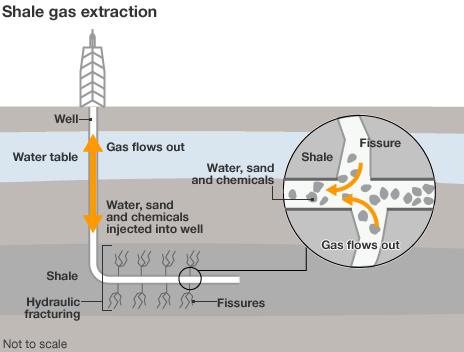
"Hundreds of battles will spring up to defend our rural landscapes from the pollution, noise and drilling rigs that come with fracking."
In an interview with BBC business editor Kamal Ahmed, Cuadrilla chief executive Francis Egan said public fears about fracking were "understandable", but unfounded.
"People have not actually seen much happen on the ground, so what they are reacting to is a lot of stories, and understandable fears... There is always uncertainty when you are hearing about something but you can't actually see it," he said.
Licence refused
Last week, the government announced plans to fast-track fracking applications, saying it could take over the power to decide if councils repeatedly take longer than the 16-week statutory timeframe.
Environmentalists argue this undermines the government's pledge to give the power to decide on fracking to local people.
The announcement came after Lancashire County Council refused permission for Cuadrilla to frack at two sites. The company is appealing against the decision.
The process of fracking - where water, chemicals and sand are blasted at shale rocks to release the gas trapped within - has proved deeply unpopular among many members of the public. They are concerned about earth tremors, water contamination and disruption to rural communities.
The industry insists that many of these fears are overblown, and that fracking can be carried out safely under the right regulations.
Environmentalists also argue that gas is a fossil fuel that emits CO2 and contributes to global warming. Investment, they say, should instead be made in renewable, cleaner energies such as wind and solar.
However, the government is keen to press ahead with fracking to reduce reliance on imported energy. It looks to the example of the US, where abundant shale gas has seen gas prices fall dramatically.
But questions remain whether fracking in the UK, with a very different geology and property rights, and where there has been relatively little investment in research and development, will be possible on a commercial scale.
- Published13 August 2015
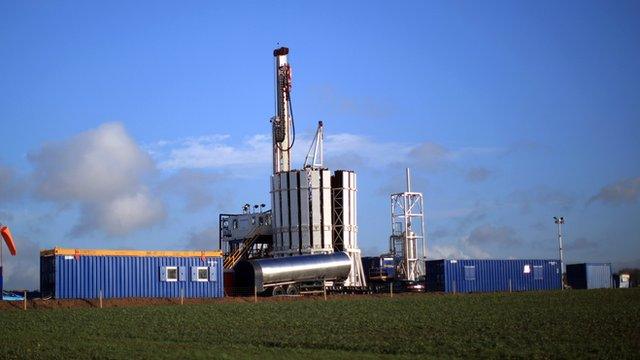
- Published23 June 2015
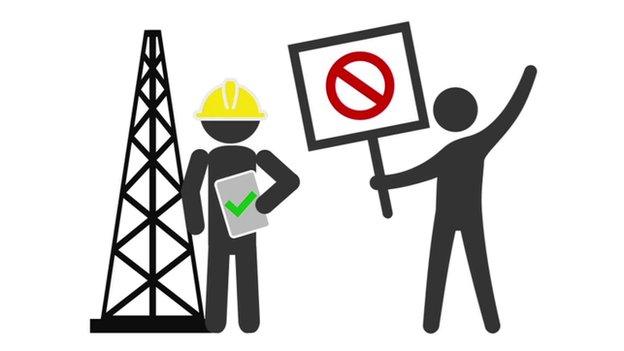
- Published23 June 2015
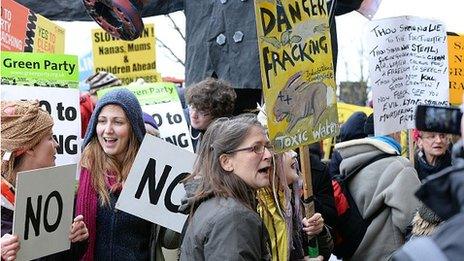
- Published3 June 2015
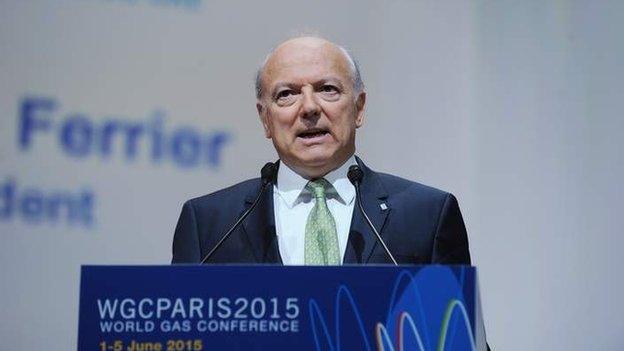
- Published7 April 2014
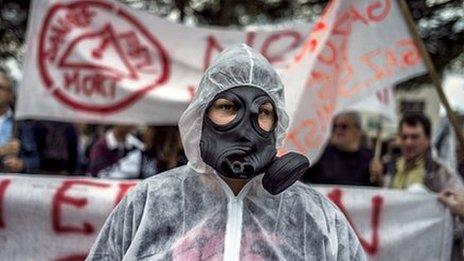
- Published13 December 2012
